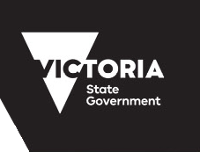Land Policy Context
Australia
Ag2030 Goal
The Australian agricultural industry – farming, fishing and forestry sectors – aims to be a $100 billion industry by 2030 (Ag2030).
Achieving the Ag2030 vision requires all levels of government and industry to work together. It will require a significant increase in productivity while maintaining Australia’s reputation for high-quality and sustainable produce.
Ag2030 identifies seven themes for action:
- Trades and exports
- Biosecurity
- Stewardship
- Supply chains
- Water and infrastructure
- Innovation and research
- Human capital.
National Soil Strategy 2021-2041
The National Soil Strategy 2021-2041, sets out how Australia will value, manage and improve its soil.
The goals and objectives in the Strategy are aimed at restoring and protecting soil nationally, by driving collaborative and coordinated on-ground action, research, education, monitoring and governance.
The Strategy prioritises soil health, empowers soil innovation and stewards, and strengthens soil knowledge and capability.
Industry Frameworks
Australian Beef Sustainability Frameworks – developed by the industry in collaboration with stakeholders to meet the changing expectations of consumers, customers, investors and other stakeholders to define sustainable beef production that is socially, environmentally and economical responsible.
Australian Dairy Industry Sustainability Framework – supports the industry’s commitment to addressing emerging sustainability issues over the long-term and improving the industry’s resilience to meet challenges as they come, including climate change.
Sheep Sustainability Framework – Australia’s sheep meat and wool industry is developing a Sheep Sustainability Framework to assist industry to better understand its opportunities, challenges and impacts in key areas such as animal care, the agricultural landscape, economic resilience, and people and community.
Victoria
Agriculture Victoria Strategy
The Victorian Agriculture Strategy, seeks to build on the sector’s strengths, enable it to respond flexibly to emerging challenges and capture new opportunities so that agriculture can continue to flourish in the face of global change and increasing unpredictability. Responding to these risks also presents enormous opportunities to showcase Victorian innovation and tenacity. The Strategy, identifies clear areas of focus and investment by Government and sets out a range of commitments under the following themes:
- Recover from the impacts of drought, bushfires and the coronavirus (COVID-19) pandemic and become an engine of growth for the rest of the economy
- Grow the value and output of agriculture through increased exports, investment, greater diversification and new products
- Modernise Victorian agriculture through innovation, investment and future skills
- Protect and enhance the future of agriculture, by ensuring it is well placed to respond to climate change, pests, weeds, disease and increased resource scarcity
- Promote and build confidence in the sector to international markets and the community.
Agriculture Victoria, makes the following commitments to support the sector in responding to change and developing capability:
- Support farmers with information and tools to build resilience
- Position Victoria as a leader in low-emission agriculture
- Ensure Victorian agriculture is well-placed to manage climate risk and continues to be productive and profitable under a changed climate
- Deliver best practice regulatory systems to manage risk and respond to new challenges
- Deliver the agriculture skills of the future.
Digital Agriculture Strategy 2018, Agriculture Victoria
Agriculture Victoria’s Digital Agriculture Strategy, outlines the Victorian Government’s plan to support Victorian farmers to harness digital technologies to build a more efficient, sustainable and productive agriculture sector in Victoria.
Victorian Forestry Plan
The Victorian Government has developed the Victorian Forestry Plan, to assist the industry as it manages its gradual transition away from large-scale native forest harvesting.
The aim of the long-term plan is to provide workers and businesses time to plan for their future and the industry as a whole time to move away from native timber harvesting.
Regional
Lake Wellington Land and Water Management Plan 2018-2028
The Lake Wellington Land and Water Management Plan (2018), outlines how irrigators, industry and government will work together to achieve a highly productive and sustainable irrigation community that values, and protects its natural and cultural assets.
The ten year Plan, developed with input from irrigators, industry and government, benefits irrigated land and the environment in the Lake Wellington catchment.



